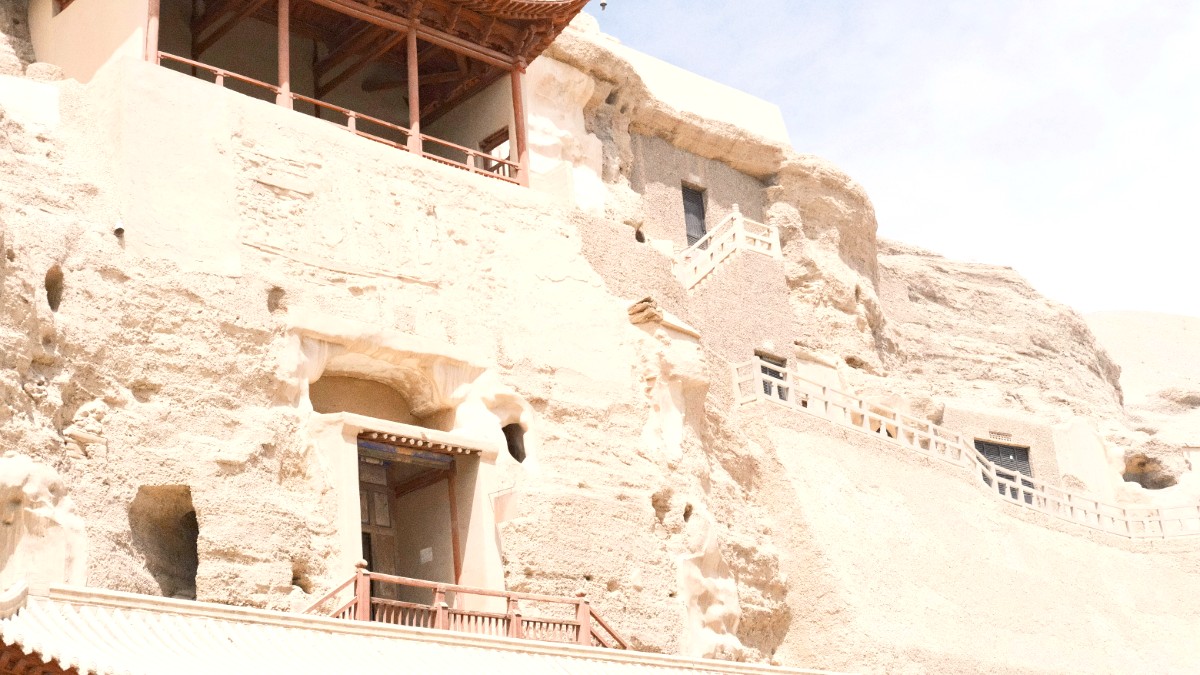
Gansu, China
Effective communication supports a pleasant trip to Dunhuang, especially given potential language barriers. Local SIM cards are available from China Mobile, China Unicom, and China Telecom (passport needed for activation). These provide data and local calls. Airalo presents a convenient eSIM option.
Practice these before your trip to communicate with locals effectively.
Dunhuang's businesses mostly cater to tourist flows, with varying schedules for different establishments.
Access to money and awareness of public holidays are important for smooth travel logistics. ATMs are widely available, accepting international cards.
Have your hotel write down names and addresses of your destinations in Chinese. This is helpful for showing to taxi drivers or asking for directions.
For airport comfort and compensation, various services enhance your travel journey, especially for frequent travelers or those experiencing disruptions.
Priority Pass gives frequent travelers independent airport lounge access around the world, making layovers more comfortable.
Compensair is a service that assists customers in receiving compensation for flight delays, cancellations, or denied boarding.
Solis Wi-Fi offers portable Wi-Fi devices, ensuring continuous internet access during your travels without relying on local SIMs.
Accessibility infrastructure for travelers with mobility challenges is generally limited in Dunhuang, as in many older parts of China. Historical sites present particular challenges.
While challenges exist, some areas have better accessibility. Specific services for travelers with visual or hearing impairments are limited. Research is advisable.
For consistent internet access, consider a portable Wi-Fi device from Solis Wi-Fi. Remember to install and test your VPN on all devices before arriving in China.
Dunhuang, like much of China, maintains generally conservative social norms. Public displays of affection are uncommon across the board. LGBTQ+ issues are not a frequent topic in public discussion, and while no explicit laws prohibit homosexuality, public acceptance remains limited.
Visitors will observe a preference for discretion in personal relationships within public spaces. This approach to public interaction spans all demographics.
While there are no explicit laws criminalizing homosexuality in China, the social landscape does not widely embrace open LGBTQ+ identities. This means public acceptance may differ from many Western countries.
Accessibility infrastructure for travelers with mobility challenges generally has limits in Dunhuang, similar to many parts of China, especially at older sites.
Specific services for travelers with visual or hearing impairments are not widely available. It is advisable to plan accordingly, possibly with a travel companion.
Embrace local experiences like visiting the Shazhou Night Market. Enjoy traditional foods and observe daily life to deepen your cultural appreciation.
The time of year you visit Dunhuang shapes your experience, with each season presenting unique aspects and considerations for travelers.
Summer months in Dunhuang feature very long daylight hours, enabling extended exploration of attractions. This period is ideal for maximizing sightseeing time.
Winter brings significantly fewer crowds to Dunhuang, offering an unique peaceful atmosphere and lower prices for accommodation and some attractions. The desert landscape presents stark beauty.
Visiting during certain periods can expose you to local cultural celebrations, but also comes with considerations regarding crowds and business hours.
It is generally advisable to avoid traveling during China's major national holidays to escape extreme crowds and peak prices across all travel services.
If visiting in the low season (winter), confirm attraction opening hours in advance, as some outdoor activities might be limited. Embrace the tranquility and the unique, uncrowded perspective of the grottoes and desert.